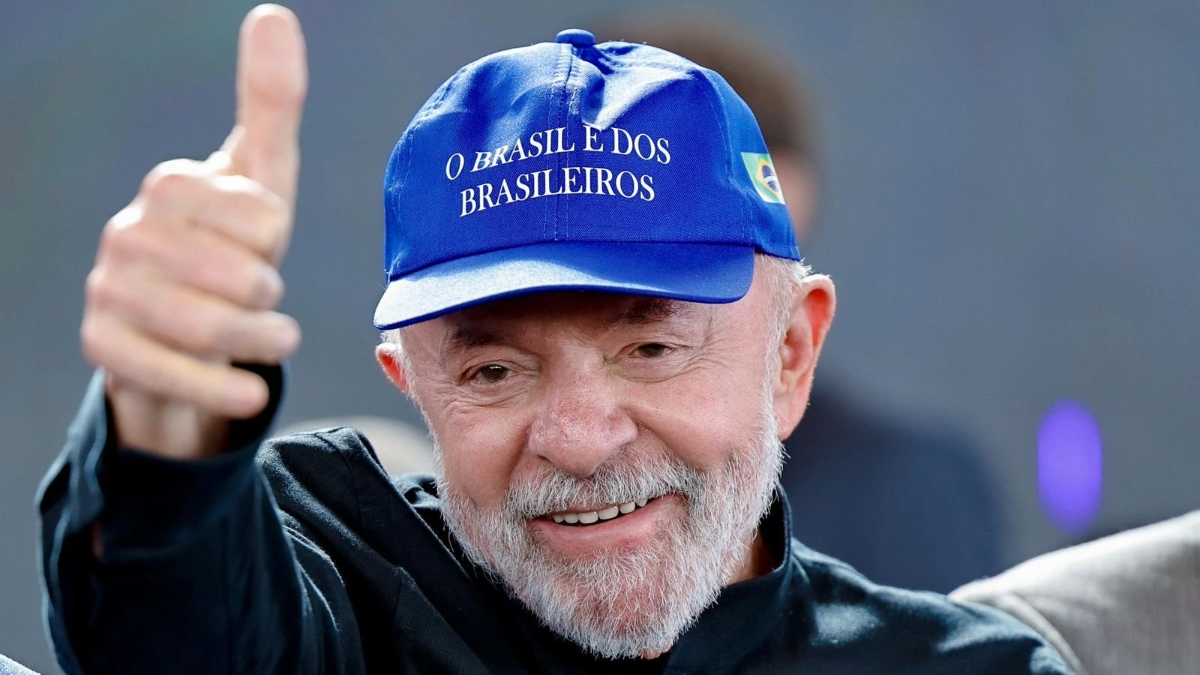Trump’s Attack on Brazil’s Sovereignty May Backfire on US Tech Firms
Laís Martins / Aug 1, 2025Laís Martins is a fellow at Tech Policy Press.

Brazilian President Luiz Inácio Lula da Silva. Source: X
For months, US President Donald Trump has been engaged in a campaign to interfere in Brazil’s justice system on behalf of the country’s former President, Jair Bolsonaro. One component of that campaign is Trump’s claim that a Brazilian Supreme Court justice has unfairly penalized US tech platforms and hindered the speech of far-right political figures.
This week, the Trump administration escalated its effort to get Brazil to end Bolsonaro’s ongoing trial and to relax its posture on tech regulation. But these efforts could backfire on the Trump administration and ultimately on US tech firms that hoped to benefit from its heavy handed tactics, as the Brazilian posture appears to be stiffening.
Trump imposes new tariffs and sanctions
On Wednesday, the White House published an executive order confirming the 50% tariffs against Brazil threatened by Trump in early July. Titled “Addressing threats to the United States By The Government of Brazil,” the document dismissed any lingering doubts about the real objective of the trade war initiated by Trump: the US government intends to interfere in Brazil’s legal system, which has imposed limits on Big Tech platforms and far-right anti-democratic actors, by using trade mechanisms as blackmail.
On the same night, the US confirmed sanctions against Brazilian Supreme Court Justice Alexandre de Moraes under the Magnitsky Act, which was devised to penalize human rights offenders. Moraes will see any US-based accounts frozen and any valid US visas revoked.
Trump’s interference could backfire in more than one way, according to tech policy and legal experts in Brazil. Not only have Trump's tariffs emboldened a cry for sovereignty and a defense of democratic institutions in Brazil, but they have boosted the popularity of left-wing President Luiz Inácio Lula da Silva one year ahead of presidential elections.
After the sanctions against Moraes, the Brazilian Presidency published remarks in which Lula said he stands in solidarity with Moraes, called Trump's interference in the Brazilian legal system “unacceptable,” and denounced the use of political arguments to justify trade barriers as “unjustifiable.” Likewise, in a New York Times interview published on Wednesday, Lula said Brazil will not bend. “At no point will Brazil negotiate as if it were a small country up against a big country,” said the president.
“Despite using a trade mechanism, this is not about the economy, it's something much more political, more ideological than the economic justifications that are in the letter and that have already been widely dismissed,” said Liz Nóbrega, coordinator for strategic communication and innovation at Aláfia Lab, a research and advocacy organization dedicated to digital rights, and a researcher at the University of São Paulo.
Nóbrega highlights two aspects of the Trump administration’s latest move: a political-ideological side, focused on defending actors such as former president Jair Bolsonaro, his sons and sympathizers; and an economic side based on the the defense of digital platforms and of an idea defended by the US government as to how they should operate in Brazil.
Moraes, the Supreme Court Justice who is a nemesis of the far-right in Brazil, has a double target on his head. He is at once the justice leading the trial against Bolsonaro around his involvement in a coup d’état attempt (and that could lead him to jail), and he is the justice who has led a series of landmark cases against social media companies.
“This is the context from which derives the application of the Magnitsky Act against Moraes, one of the harshest judges in favor of holding technology platforms accountable for their respective content, even going so far as to block X in the national territory for disrespecting court decisions,” said Wilton Gomes, a lawyer and PhD in State Law at the University of São Paulo.
In Brazil, if restrictions and enhanced regulations against Big Tech firms have not come from federal law or from Congress, they have come from the courts, said Gomes.
Recently, the Supreme Court voted to overturn the current platform liability regime, ruling that social media companies could be held accountable for third-party content deemed illegal, even without court orders. The decision is a step towards increased responsibility for social media companies given the Brazilian Congress’ failure to pass a law regulating platforms.
Yasmin Curzi, a law professor at Fundação Getúlio Vargas in Rio de Janeiro and a postdoctoral research associate at the Karsh Institute of Democracy, University of Virginia, is skeptical about the reach of the sanctions against Moraes.
“The Magnitsky Act does not have practical effects in Brazil. It has not been internalized in the Brazilian legal system as far as I'm aware, and it has never been ratified in the Brazilian territory, so its effects are limited to the US territory,” said the professor.
Curzi also connects the recent developments to two incoming bills Brazil’s executive branch is working on around tech regulation. Although the specific details are yet to be known, one is set to focus on the online safety of children and teenagers, while the other is more geared towards market regulation. But Trump’s moves may have reduced the government’s overall willingness to negotiate with US tech firms.
This week, while Brazilian authorities unsuccessfully attempted to establish dialogue with US counterparts to negotiate on the tariffs, technology companies’ representatives took part in two meetings with high-level government officials.
Meta, Google, Amazon and other companies reportedly brought an “agenda” that included legal security, technological innovation and regulatory environment, according to Brazilian Vice President Geraldo Alckmin. An official representing US Commerce Secretary Howard Lutnick apparently joined one of the meetings, suggesting that it’s possible that concessions to the tech firms could potentially have resulted in some leeway on tariffs.
The demands of the tech firms, according to Globonews, a prominent news channel, included pushback against the Supreme Court decision to increase platform accountability, a generous incentive package for data centers, and the promise to not tax digital services.
Nóbrega, from Aláfia Lab, says the White House announcement reveals an attempt to impose its vision of free speech on other countries. “In my view, this directly affects Brazil's sovereignty. It is clearly retaliation against Brazil for how it has tried to develop a regulation for tech platforms and a need to hold them accountable.”
While Brazil’s moves against the platforms and against far-right extremists is, in Trump's interpretation, a grave violation of human rights and free speech, Brazilians regard them as driven by a need to protect the digital space and the free speech of Brazilian users from anti-democratic actors, said Nóbrega.
An unexpected electoral push for Lula
In Brazil, the articulation done by the Brazilian far-right with the Trump government to sanction Moraes and hurt the Brazilian economy are being read as a miscalculation.
If anything, the measures have been successful in boosting Lula's popularity, creating unison among Brazilians and repairing a once-fractured relationship between the three branches of the Brazilian government, especially with the Executive branch and Congress.
On the day after the executive order, Lula's approval ratings passed his disapproval for the first time in 2025, according to a Bloomberg and AtlasIntel survey.
In an unexpected show of support, the president of the Lower House of Congress, federal deputy Hugo Motta, defended the independence of the Judiciary body and said that “as a sovereign country, we cannot support any type of sanctions by foreign nations toward members of any of the constituent powers.”
This type of movement is relevant as Brazil is set to hold presidential elections in 2026. One year out, any predictions are nothing short of speculation, but an AtlasIntel and Bloomberg survey shows that Lula would come out victorious in a second round against any of the seven most likely names for the right-wing ticket.
“Bolsonaro achieved the unimaginable, which was to get Hugo Motta to declare his support for Moraes. He managed to unite Congress. Finally—his campaign promise was to unite Brazil, he is achieving that quite well,” said Curzi.
Authors
